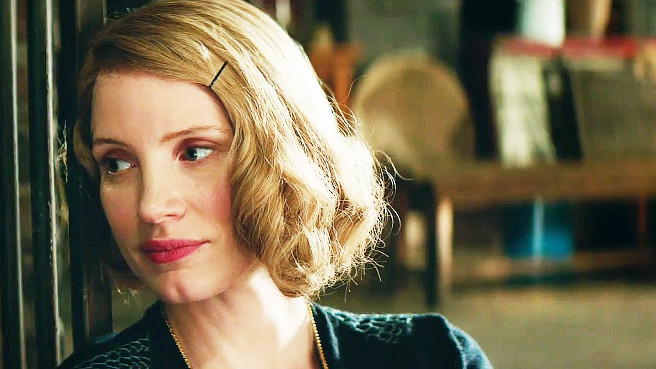

She is an example of the difference one person can make.” “I think as people we think of heroes as not being afraid, but they are and they act anyway. “She was an ordinary housewife and an extraordinary heroine,” says Ackerman. When the danger was gone, she would play another. When a Nazi soldier approached, Antonina would play one piece on the piano.

Some refugees were hidden in animal cages, others in the basement of the villa at the zoo. What was extraordinary was that the Zabinskis were doing all this while surrounded by German troops. “She was shy and deferential to her husband, but eventually she was responsible for caring for all these individuals and making life-or-death decisions.”

#Me before you or the zookeepers wife movie#
She showed me that I could make a new kind of Holocaust movie that was profoundly feminine and could honor her experience.”Ĭhastain describes Antonina, whose parents were killed by Bolsheviks in the Russian Revolution and had an affinity for animals, as a typical housewife of the time. Then there was Antonina herself, so soft and so strong. That level of humanity and decency really spoke to me. “They did the right thing for no other reason than it was the right thing to do. “I was really inspired by the Zabinskis,” says the New Zealand director. So getting “The Zookeeper’s Wife” to the screen was a slog. The director was first approached about the project some seven years ago. “We’ve had many films that focus on the darkness and the violence and murder, but we’ve never had a film that focuses on the light and the goodness in people during the time of war - and the feminine and the compassionate.” “She told me things that weren’t even in the book about Antonina,” says the actress, who also visited Auschwitz “because though I had studied concentration camps, I wanted to know what it meant to be on the ground.”Ĭhastain notes there are many films about World War II and the Holocaust, but most are from a male perspective.

To prepare for the film, Chastain talked with the couples’ daughter, Teresa, who was born during the war. Secretly, though, they began to hide Jews and even smuggled them out of the Warsaw Ghetto.Īs the war went on, much of the burden for hiding refugees and members of the Polish underground fell to Antonina after Jan joined the resistance and was captured in the Warsaw uprising of 1944.Īfter the war, the state of Israel honored the Zabinskis for their efforts. Some of the animals roamed the city until they were shot down.Ī Nazi zoologist, Lutz Heck (Daniel Bruhl), took the best of the surviving creatures for his selective-breeding program, but the Zabinskis persuaded the Germans to use the zoo as a pig farm to provide food for Nazi soldiers. When the Germans invaded Poland in 1939, they ruthlessly bombed the city of Warsaw, including the zoo. The Zabinskis had until then led a fairly idyllic life caring for their son and the animals. The film by Niki Caro is from Diane Ackerman’s book, which is based on the diary of Antonina Zabinski, who, along with her husband, Jan Zabinski (played by Johan Heldenbergh), had been running the zoo before the war.


 0 kommentar(er)
0 kommentar(er)
